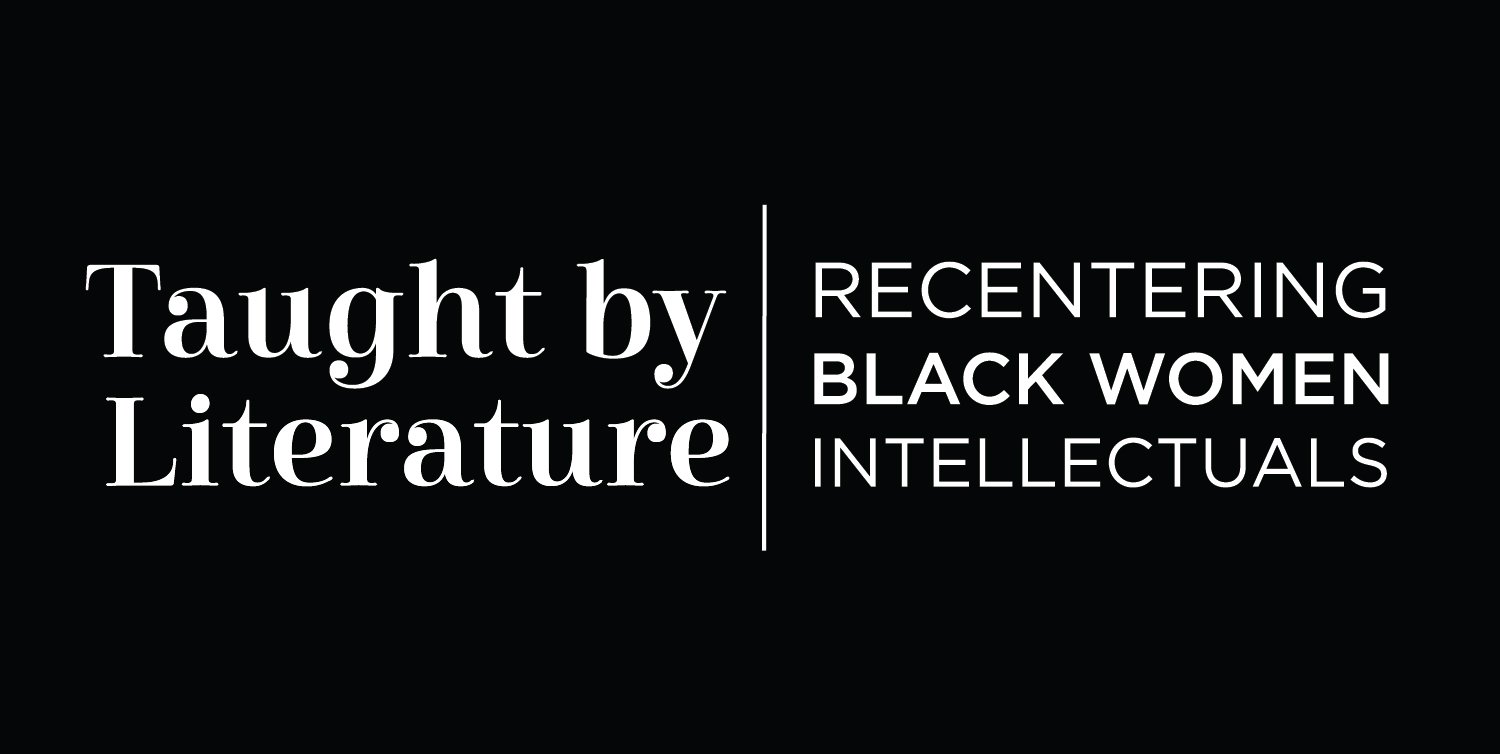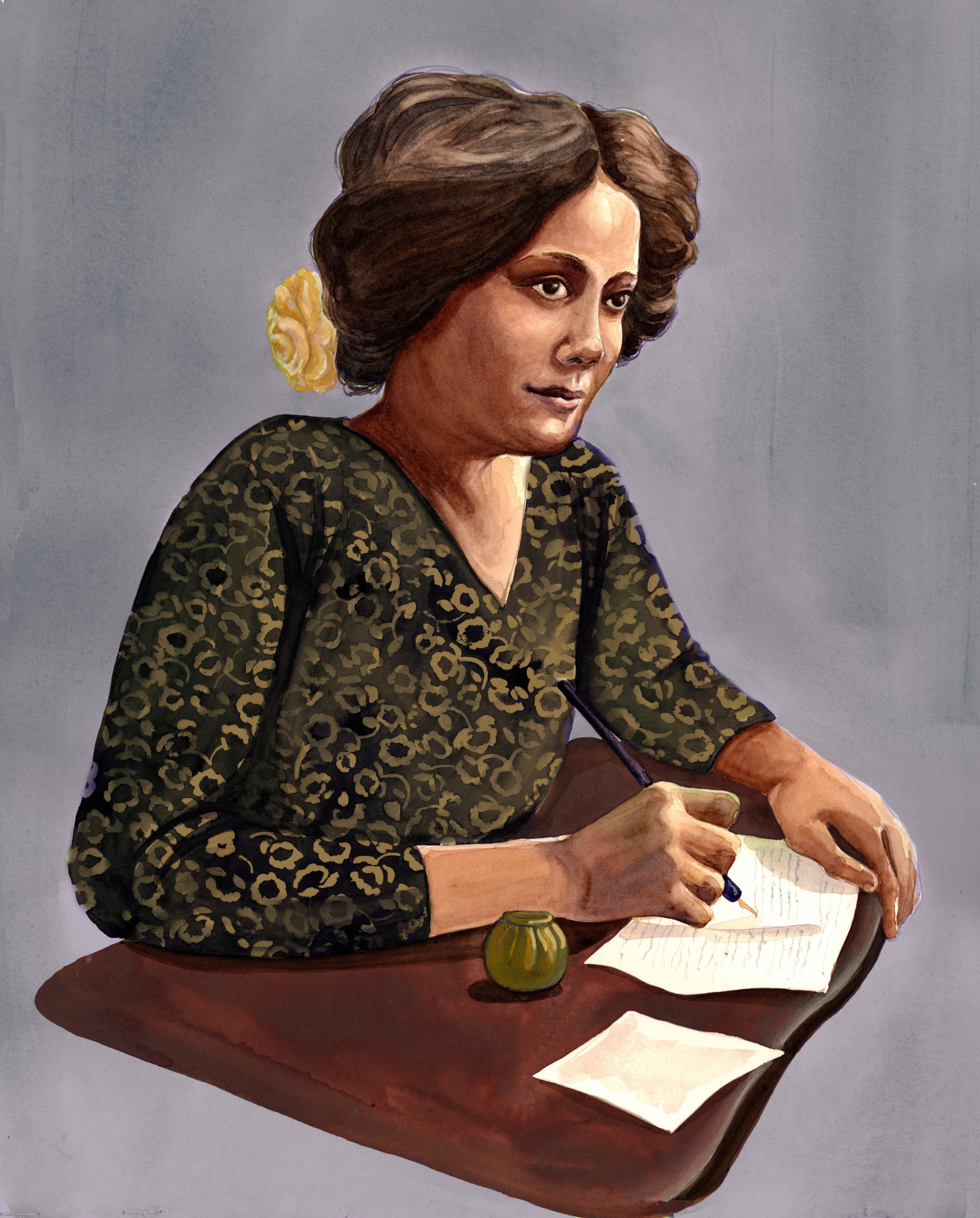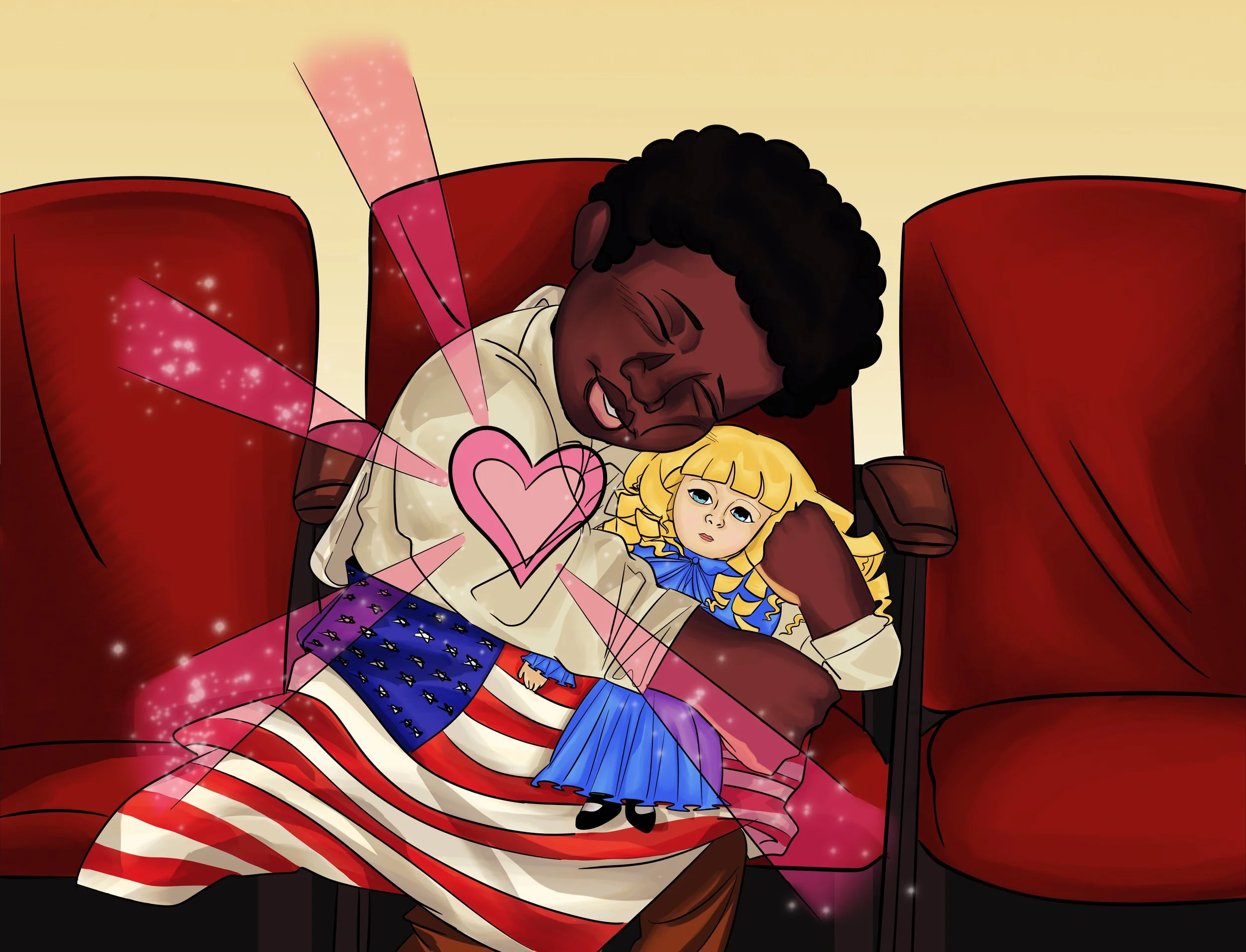“WE DO NOT TEACH LITERATURE-
WE ARE TAUGHT BY LITERATURE.”
–Alice Dunbar-Nelson
Class in language, 1904. Schomburg Center for Research in Black Culture, The New York Public Library

Taught by Literature
is a collaborative project honoring Black author and activist Alice Dunbar-Nelson’s lifelong commitment to education. Black women intellectuals have always contributed to public debates, published their ideas, and created movements for social change but their work is not as well-known as it should be.
Taught by Literature celebrates Alice Dunbar-Nelson’s legacy by recentering Black women writers, beginning with Dunbar-Nelson herself and extending to other Black women from the Harlem Renaissance and earlier.
Portrait of Alice Dunbar-Nelson by Shadra Strickland
Black Women Intellectual
Meet Alice Dunbar-Nelson
Alice Dunbar-Nelson (1875-1935), was an author, activist, and educator who participated in the women’s suffrage movement, fought for anti-lynching legislation, and edited collections of work by Black writers and orators. Bold and creative, she found joy in reading and writing from a young age. She is best known for her war poem “I Sit and Sew” (1918), but she wrote in many genres. She published her first book at age 20 and built a career as a poet, playwright, essayist, fiction writer, and journalist.
Born and raised in New Orleans, she moved to the Northeast as a young adult. Her experience teaching Black kindergarteners in New York City in the 1890s inspired her to create the fictional world of ’Steenth Street, where children play, grow, and navigate the challenges of urban poverty. In 1922, she published an essay on the importance of teaching Black children literature by Black authors. “We do not teach literature,” she wrote. “We are taught by literature.”
The ‘Steenth Street Stories
Our team is producing an accessible digital edition of The 'Steenth Street Stories, an extraordinary unpublished short story collection written by Alice Dunbar-Nelson based on her work at the White Rose Mission in the 1890s.
Illustration by Miles Williams
Lifting Black Women’s Voices
Lifting Black Women’s Voices presents a series of short videos featuring contemporary Black women educators reading aloud from lesser-known texts by African American women writing in the 18th, 19th, and early 20th centuries. Still under development, this project will include biographies and additional resources to contextualize each work.





